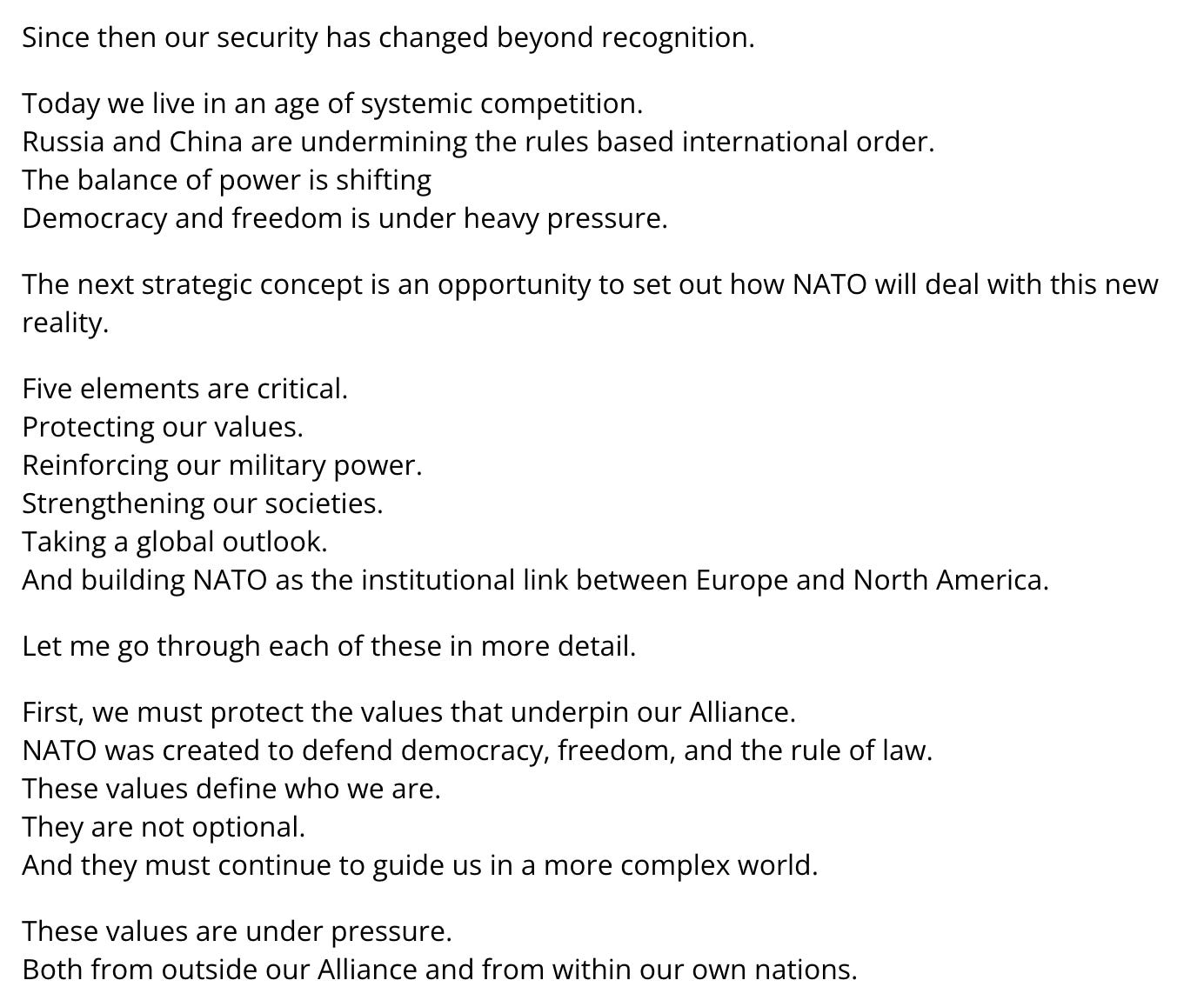Send us news tips. If there’s an article you think Cristina should include, send it to c.maza@protonmail.com, or just reply to this newsletter.
What Cristina’s writing:
• She wrote about the collapse of plans to include two anti-corruption bills in the National Defense Authorization Act—the US’s annual defense policy bill —last week owing to a turf war between the Foreign Relations Committee and Banking Committee over which government body should monitor foreign donations to US universities.
What Cristina’s reading:
• The European Commission wrote a letter to Hungary and Poland about problems with the independence of their judiciaries, the ineffective prosecution of corruption, and deficiencies in public procurement. The two letters are an informal first step toward triggering a mechanism allowing EU money to be cut because of rule-of-law concerns, Politico Europe reports.
• Human rights activists submitted evidence to the International Criminal Court as they called for an investigation into the abuse of migrants in Libya.
• Radio Free Europe has a deep dive into the tragic death that exacerbated vaccine skepticism in Georgia.
• Spain’s Prime Minister Pedro Sánchez was fined 2,420 euros for giving a television interview from the Moncloa, the prime minister’s official residence, while campaigning for the 2019 election, Politico Europe reports. In the US, you'd call that a Hatch Act violation.
• Everyone should watch this wild BBC interview with Belarusian dictator Alexander Lukashenko. Journalist Steve Rosenberg did a great job pressing Lukashenko on protests and the election results from last year.
• Belarus’s oldest newspaper, Nasha Niva, was banned after the government accused it of extremism, the Associated Press reports.
• Bulgarian President Rumen Radev won a second term in a runoff vote, Politico Europe reports. Radev was a significant supporter of anti-corruption protests launched last year against former Prime Minister Boyko Borissov and his GERB party.
• The US Embassy in Bulgaria expressed “deep concern” that Bulgarian President Rumen Radev described Crimea as “Russian.”
• The Biden Administration is considering sending military advisers and new equipment, including weapons, to Ukraine as Russia builds up forces near the border, CNN reports. Two refitted former US Coast Guard patrol boats arrived at a Ukrainian port to bolster the country’s navy, Reuters reports.
• Joint Chiefs of Staff Chair General Mark Milley spoke with Russia’s top military officer, Chief of the General Staff General Valery Gerasimov, about “risk reduction and operational deconfliction” as Russian troops mass near the Ukrainian border. Here is a readout of their call.
• Russian prosecutors filed a lawsuit to liquidate the human rights organization Memorial, claiming it violated the country’s foreign agents act. Novaya Gazeta has an open letter on the case (in Russian). (For a discussion of the way Russia uses the foreign agents act to quash dissent, see this essay by Cosmopolitan Globalist Monique Camarra: What does “an election” mean in Russia?)
• Russia demanded that 13 foreign tech companies—including Google, Facebook, Twitter, and TikTok—set up offices in Russia by the end of the year or face restrictions and bans, Reuters reports.
• Demetri Sevastopulo (who, I just noticed, somehow snagged the amazing Twitter handle @Dimi) reports in the Financial Times that China’s hypersonic missile test in July “included a technological advance that enabled it to fire a missile as it approached its target traveling at least five times the speed of sound—a capability no country has previously demonstrated.”
• Authorities in El Salvador raided the offices of seven social service and advocacy groups in an embezzlement investigation that advocates say is part of a politically motivated crackdown on independent voices, The New York Times reports.
• Venezuelan President Nicolas Maduro said that talks with the opposition would not restart until the US releases the Venezuelan government envoy Alex Saab, who was extradited to the US on charges of money laundering, Reuters reports.
• The US will remove the Revolutionary Armed Forces of Colombia (FARC) from a list of foreign terrorist organizations to demonstrate US support for the 2016 peace agreement between the rebels and former Colombian President Juan Manuel Santos, the Wall Street Journal reports.
• India’s anti-terrorism agency arrested Khurram Parvez, a prominent human rights activist in the Indian-administered Kashmir region, the Washington Post reports.
• Kurdish-led forces in charge of prisons in northern Syria that hold around 10,000 men alleged to be linked to ISIS are releasing prisoners in exchange for money under a “reconciliation” scheme, the Guardian reports.
• Ethiopian Prime Minister Abiy Ahmed announced on Twitter that he would lead troops to fight the rebels advancing on the country’s capital.
• Sudan’s ousted Prime Minister Abdalla Hamdok, who was removed in a military coup last month, has been reinstated, the BBC reports. Hamdok appeared on television to sign a new power-sharing agreement with the coup’s leader, General Abdel Fattah al-Burhan.
• The New York Times reports that the deal evoked fury on the streets of Sudan, where protesters called it a betrayal.
• Uzbekistan and Kazakhstan held military drills near Kazakhstan’s border with Afghanistan, imitating a response to an incursion, Reuters reports.
• The United Nations warns that Afghanistan's banking system could collapse within months, Reuters reports.
• The Taliban has expanded its war against the Islamic State branch in Afghanistan, conducting night raids against suspected Islamic State-Khorasan members. Many of the hundreds arrested have disappeared or been found dead, the Washington Post reports.
• Politico Europe has an interesting report on how Athens became an unexpected hub for 700 of Afghanistan’s female judges, lawmakers, journalists, and lawyers fleeing the Taliban.
What Claire’s reading:
This story in the Global Times—China’s English-language soft power vanguard—is hilarious. Lithuania, you may recall, had the temerity to allow Taiwan to open a de facto embassy in Vilnius. The Global Times has whipped itself into an ecstasy of outrage: Lithuania, the MOST EVIL COUNTRY IN THE WORLD!
Experts and observers reached by the Global Times said that Lithuania, a typical supporter of white supremacy and racism, whose long history of crimes against humanity makes it nothing less than a '“modern-day Nazi” state. …
(Does anyone read the Global Times for any purpose but amusement? Why does this newspaper exist? Do the employees who work there think people take them seriously? I’m genuinely puzzled.)
More seriously, read this profoundly disturbing story in the New Yorker, by Ian Urbina, about the secret EU scheme to send migrants to Libyan gulags. Urbina was beaten, kidnapped, and detained as he worked on it.
A story like this should result in revulsion and outrage across the Continent. The architects of this program should be shamed. They should be imprisoned, actually.
Migrants in Al Mabani were beaten for whispering to one another, speaking in their native tongues, or laughing. Troublemakers were held for days in the “isolation room,” an abandoned gas station behind the women’s cell with a Shell Fuel sign hanging out front. The isolation room had no bathroom, so prisoners had to defecate in a corner; the smell was so bad that guards wore masks when they visited. Guards tied the hands of detainees to a rope suspended from a steel ceiling beam and beat them. “It’s not so bad seeing a friend or a man yelling as he’s being tortured,” Soumahoro said. “But seeing a six-foot-tall man beating a woman with a whip … ” In March, Soumahoro organized a hunger strike to protest violence by the guards, and was taken to the isolation room, where he was strung upside down and repeatedly beaten. “They hang you like a piece of clothing,” he said.
But I fear people will shrug.
Notes from the Chancelleries
From the EU External Action Service:
From the State Department:
From the Kremlin:
From the Japanese Foreign Ministry:
From the Ukrainian Foreign Ministry:
From the Chinese Foreign Ministry:
Bonus: NATO Poetry
NATO Secretary General Jens Stoltenberg’s delivered these remarks at the “NATO’s outlook towards 2030 and beyond” event in Latvia:
Drumroll …
In the next few days, we have something very exciting to show you. We’re so excited about it we can barely keep still.
Meanwhile, do you think the Cosmopolitan Globalist is doing something worthwhile? Are we doing a good job of telling you about things you’d like to know more about?
If so, we’d be so glad, and encouraged, if you’d subscribe:
If you subscribe already, perhaps you’d like to give a friend a gift subscription?
We’re funded by you—and only by you—so if you think this is a worthwhile venture, please help us keep it up, improve, and expand. We couldn’t do it without your support.
















The link to the New Yorker story about Libyan gulags is busted...
The New Yorker article is well worth the read.
When you think it is over, keep scrolling down and there is more.